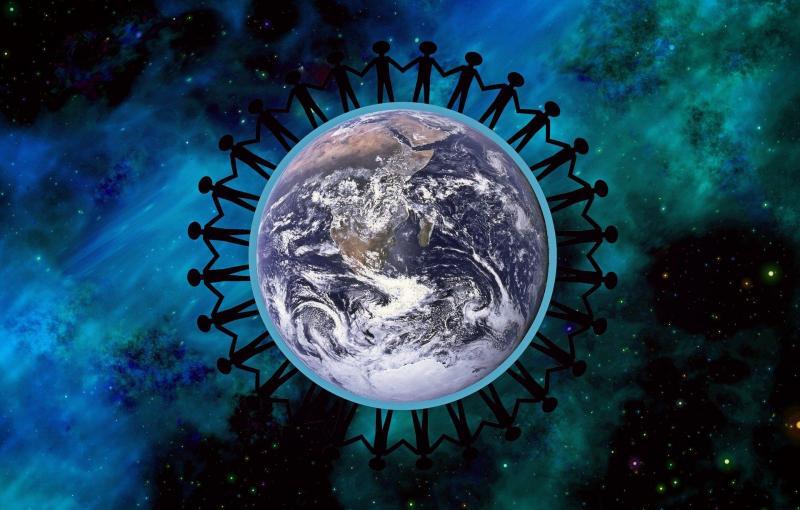Government and Society on The Brink


By Rohit Talwar
The current crisis has surfaced a number of critical fragilities at the individual, societal, national, and international level. These have either been well understood but patchily addressed in the past, or are issues to which some or all are genuinely blindsided. Here are ten of those key issues that we think will have to be part of the recovery agenda at national and global level.
Individual Financial Security – The crisis has highlighted that some people literally do not have enough savings to see them through the next month, week, or day. Whilst for many, there was a vague acknowledgement of this as we went about our daily lives, it didn’t truly seep into our consciousness or influence our behavior. Now, the massive expansion of people using foodbanks, coupled with the sight of mass population feeding programmes in developing countries, has highlighted the scale of the problem and how far we have to go to resolve it – if that is seen as a priority.
Making real impact on these first two UN Sustainable Development Goals of ‘No Poverty’ and ‘Zero Hunger’ implies achieving a level of long term individual sustainability. Governments will come under intense pressure to rethink social policy and to assess the suitability of welfare payments against broader questions of how long an individual or family can last with the money on offer. As a result, the debate about the need for some form of universal basic incomes and services will inevitably rise in volume and intensity.
Health Access – The poor state of people’s finances has left many with little or no ability to pay for care and limited access to emergency public provision. The funding of, and access to, healthcare for all could become an issue on which governments rise and fall.
Health and Elder Care Systems – The crisis has highlighted multiple issues around the level of provision, health and care worker salaries, resourcing levels, personal protective equipment, testing, logistics and distribution, managerial preparedness, resilience, and emergency planning. Every system globally will need to rethink its strategies, funding models, structures, early warning systems, and crisis protocols for a world where the awareness of the range of impending health risks has been heightened.
Personal Physical Safety – There has been a clear, and in some cases massive, rise in reported cases of domestic abuse, calls to helplines, and the unseen suffering of those not in a position to call out. Once the recovery starts, non-interventionist governments in particular are going to be challenged to determine the priority placed on such matters. The resulting choices will have far reaching implications for funding of support services from social services and policing through to healthcare and education.
Mental Health – The number of cases of stress and other mental health conditions has seen a continuous rise in the last few years. The cost to society across multiple dimensions from healthcare to business interruption had already been estimated in the trillions of dollars. The loss of jobs, businesses, and freedoms amongst the old and young alike are reported to be driving up the volume and severity of stress and other mental health issues across society. For governments, there will be issues around the extent to which they want to intervene, ensuring access, the capacity to serve growing demand, and the funding of such services.
National Preparedness – The crisis has put a spotlight on the huge differences in the level of preparedness and capacity for rapid action in different nations around the world. Some had well tested procedures to mobilise travel restrictions, mass testing, tracing, and quarantine measures. They also had systems and policy options in place to be able to carry out a diverse range of measures from calling up reservist health workers and making direct payments to the population, through to mobilising volunteers and communities at scale. Others seemed, and still appear to be, incapable or leaden footed in their actions. This will raise the debate about the need for national mechanisms for horizon scanning and foresight, risk assessment, anticipatory contingency and disaster planning, and resilient resourcing to enable rapid scale up in emergencies.
Funding – Most nations have looked to debt and the printing of money / quantitative easing to fund their way through the emergency medical and economic response programmes they have had to implement. The question is how, or if, these bills will be paid. The general trend over the last two decades or more has been to drive down taxes in the hope that greater wealth in the economy will raise everyone’s living standards. The crisis has highlighted that this isn’t really working anywhere near as well as policy makers might have hoped in many countries across the globe.
The crisis has been expensive, the cost of recovery is as yet unknown as we face the prospect of prolonged national recessions or even a global depression. Nations my be forced to reverse taxation policy as they look to corporations, higher earners, and the wealthy to provide more of the funding to restart economies currently stuck in reverse gear. The alternative could be massive cuts in public services and government spending and prolonged periods of austerity – with all the social consequences such measures bring.
Global Institutions – The World Health Organization has come under severe criticism from some quarters and been seen by others as an essential resource and partner in navigating the crisis. The United Nations and global financial institutions such as the World Bank have been visible, but the question is how impactful they have been. The remit and ‘rules of engagement’ for these institutions are set by their member and donor states. The key questions now are whether those rules are the right ones and whether these global organizations are truly fit for purpose when it comes to global crisis where co-ordinated solutions are required? If the answer is at least a partial no, then how do we go about modernizing or replacing them, who will fund them, and how can we ensure greater effectiveness than the existing entities they are replacing?
Weak and Failing Nations – There is growing concern that the crisis will cause chaos in nations already on the brink of collapse such as Afghanistan, Syria, and Yemen. Some estimates suggest that these and other under resourced and over stretched nations could see three million or more deaths from the pandemic. The question is how such nations can map a path to the future – do they effectively seek protection from other states, merge into larger entities, or become the testbed for radical new models of post-conflict, post-crisis government and governance?
Co-ordination of Global Power – Many would argue that in the Global Financial Crisis of 2007-2008, the worst case scenario of total economic collapse was avoided through the co-ordinated efforts of the wealthiest nations in the G7 and G20 groupings. However, this time round, they have been noticeable by their absence and their inability to even issue joint communiques over how they are coming together to tackle what is a truly global problem. Without the wealth, resources, and mobilization capabilities of these nations acting together, the crisis could stretch out far longer than the 12-24 month window that many are predicting.
The crisis is raising fundamental questions at every level and creating ‘once in a lifetime’ challenges for those in power. Many are still wrestling with the challenges of containment and exit strategies and have little bandwidth for broader medium term considerations. Others are beginning to understand that the crisis represents both a turning point and a time for fundamental reflection about the goals for human life, society, nations, and the globe that we want to enable on the other side of the pandemic. Fortunately. We have the SDGs as a start point for that reflection – the question will be how big our appetite is to use this opportunity to drive fundamental changes in our destiny.
Image: https://pixabay.com/illustrations/earth-peace-together-symbol-1207231/


